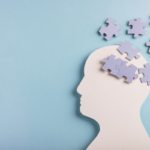The Services Offered at Memory Care Facilities
When considering memory care facilities, such as Valley Spring Memory Care, you’ll find many services tailored to meet unique needs of individuals with cognitive impairments. From personalized care plans and memory enhancement programs to medication management and safety measures, these facilities aim to provide holistic support.
But what truly sets them apart is their emphasis on social engagement and recreational activities, fostering a sense of belonging and purpose. As you explore the array of services offered at Valley Spring Memory Care, you’ll discover how these facilities go beyond mere care, creating a vibrant and nurturing environment for residents to flourish.
Key Takeaways
- Personalized care plans tailored to individual preferences and abilities.
- Memory enhancement programs with cognitive exercises and brain training games.
- Medication management for optimized treatment and side effects monitoring.
- Safety measures include 24/7 emergency staff, surveillance cameras, and routine inspections.
- Social and recreational activities to promote community engagement and overall well-being.
Personalized Care Plans
When providing exceptional care for individuals with memory-related conditions, personalized care plans are essential in ensuring each resident receives tailored support that meets their unique needs. These individualized support plans are crafted based on a deep understanding of each resident’s preferences, history, and current cognitive abilities.
By focusing on personalized care, memory care facilities can provide the specific assistance needed for each individual to thrive in their environment. Additionally, incorporating cognitive stimulation activities into these personalized care plans is vital for maintaining and enhancing cognitive functions, such as puzzles, memory games, music therapy, and art classes designed to engage residents and promote mental acuity-tailored activities.
By customizing these programs to fit the interests and abilities of each resident, memory care facilities can create a supportive and enriching environment where individuals feel valued and stimulated.
Through these personalized care plans, residents receive the attention and assistance they require, fostering a sense of belonging and overall well-being in a safe and nurturing setting.
Memory Enhancement Programs
Memory Enhancement Programs are crucial to the all-encompassing care provided at memory care facilities. These programs are designed to stimulate cognitive function and enhance overall well-being. Here are some key aspects of Memory Enhancement Programs:
- Cognitive exercises: Engaging activities that challenge memory, problem-solving, and critical thinking skills.
- Brain training: Techniques and games tailored to improve memory retention and mental sharpness.
- Therapy sessions: One-on-one or group sessions with trained professionals to address emotional and psychological needs.
- Wellness programs: Physical activities, nutrition plans, and mindfulness practices to promote overall health and vigor.
- Social engagement: Opportunities for residents to interact with peers, participate in group activities, and build meaningful connections.
Memory Enhancement Programs aim to support individuals in maintaining cognitive abilities, emotional balance, and a fulfilling quality of life through these diverse components.

Memory Enhancement Programs
Medication Management
As individuals age and their cognitive abilities evolve, the management of medications becomes a significant aspect of their overall care at memory care facilities. Medication management in these facilities is pivotal to ensuring the well-being of residents. Caregivers closely monitor the administration of medications, keeping track of dosages and schedules to guarantee that residents receive the correct treatments at the right times. Additionally, they work collaboratively with healthcare providers to optimize medication regimens and address any concerns or changes in residents’ health improving medication effectiveness and resident well-being.
One essential aspect of medication management is monitoring and addressing any potential side effects residents may experience. Caregivers pay close attention to changes in residents’ health and behavior to promptly identify and manage any adverse reactions.
Additionally, dosage adjustments are carefully considered and implemented as needed to optimize medications’ effectiveness while minimizing any associated risks.
Safety and Security Measures
Ensuring the safety and security of residents is a top priority at memory care facilities. When it comes to the well-being of your loved ones, here are some key safety and security measures in place:
- Emergency Response:
- Trained staff members are available 24/7 to handle any emergencies promptly.
- Surveillance Systems:
- Advanced surveillance cameras are strategically placed to monitor common areas, ensuring a vigilant eye over residents.
- Secure Environment:
- Access to the facility is restricted through key code entry or staff assistance, which maintains a protected environment.
- Regular Safety Checks:
- Routine safety inspections are conducted to identify and address any potential hazards promptly.
- Emergency Preparedness Plans:
- Thorough plans are in place to guide staff on proper procedures during emergencies, ensuring a quick and coordinated response.
These safety and security measures work together to provide a secure and comfortable living environment for residents in memory care facilities.
Social and Recreational Activities
Engaging in social and recreational activities plays a pivotal role in the well-being and quality of life of residents in memory care facilities. Community engagement is fostered through group outings, social gatherings, and events that promote interaction among residents. These activities not only create a sense of belonging but also help reduce feelings of isolation and loneliness.
Cognitive stimulation is an integral part of memory care facilities’ social and recreational activities. Games, puzzles, and art projects are designed to keep residents mentally engaged and active. These activities can help slow cognitive decline and improve memory retention, ultimately enhancing the overall quality of life for residents.
Physical activities like gentle exercises, yoga, and dance classes are incorporated to promote physical well-being and improve mobility. Participating in various social and recreational activities allows residents to enjoy a fulfilling and enriching lifestyle while building connections with their peers in a supportive environment.
Final Thoughts
To sum up, Valley Spring Memory Care facilities offer many services to support residents with cognitive impairments. While some may worry about the cost of these services, it’s important to consider the invaluable benefits they provide for residents and their families. From personalized care plans to safety measures and engaging activities, Valley Spring Memory Care prioritizes the well-being and quality of life of those in their care. Remember, the investment in quality memory care is well worth it for the peace of mind and support it offers—Contact Valley Spring Memory Care at 209-710-4783 for more information.
Frequently Asked Questions
Can Family Members Visit at Any Time?
Yes, you can visit your loved one at most memory care facilities. Visitation policies vary, so it’s best to check with the facility. They understand the importance of communication with families and aim to accommodate visits.
Are Pets Allowed in the Facility?
Yes, pets are allowed in the facility for pet therapy and emotional support. They contribute to a comforting environment, providing companionship and joy to residents. This policy enhances the quality of life and promotes overall well-being within the community.
How Often Are Medical Assessments Conducted?
Medical assessments are routinely conducted to monitor your health and well-being. These assessments serve as the foundation for personalized care plans, ensuring you receive the individualized support and attention needed to thrive in our facility.
Is Transportation Provided for Residents?
Yes, transportation is provided for residents at memory care facilities. Outings are scheduled for social engagement and stimulation. Accessibility may have restrictions based on individual needs, but efforts are made to accommodate residents’ transportation needs.
Are There Specialized Services for Residents With Dementia?
Specialized services, such as memory-enhancing activities, are offered for residents with dementia. The staff receives extensive training in dementia care to provide compassionate support. These activities stimulate memory, promote engagement, and enhance quality of life.






